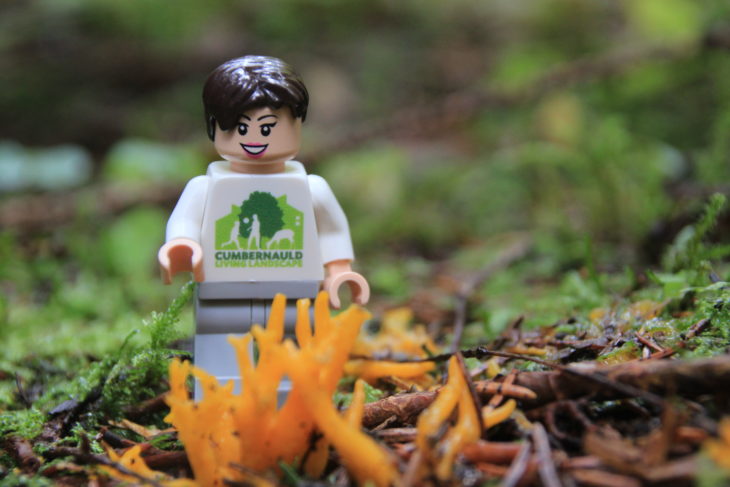Soil is more than just dirt
March 13-19 is UK Compost week and, if you’re not already excited about the magic of making compost, hopefully by the end of this blog you will be. Healthy soils…
Overview
We built on the Wild Ways Well approach successfully piloted by The Conservation Volunteers and the Scottish Wildlife Trust. This takes a proven methodology – Five Ways to Wellbeing – and combines it with nature to bring added benefits. Through this programme at least 200 people at risk of mental ill-health, such as adults with additional support needs and people at risk of social isolation, developed skills to use nature to manage their mental health. We unlocked capacity and sustainability through support and training for volunteers, support workers and other organisations.

Our approach
Issues surrounding poor mental health are on the rise and affect all age groups and areas of society. Poor mental health destroys lives and blights communities. There is still a stigma attached to this issue, with people reluctant to admit they are sufferers and to engage with traditional forms of support – which are often overwhelmed and under-resourced. In Cumbernauld a wide range of groups provide health and social care, and the people they work with are at the greatest risk of poor mental health. Our approach will support these groups and individuals to connect with nature and develop strategies to improve their own health and well-being.
As shown by our audience research, poor mental health prevents people from engaging with other people, community and nature. Lack of information on where and how to access sites also prevents people from benefiting from their local greenspaces. Raising awareness combined with opportunities to join existing groups will reduce the barriers to taking the first steps to engagement.
There is a large and growing body of research from around the world showing that a nature-based approach can have a positive and lasting effect on people’s well-being, empowering individuals and communities to change their lives for the better. Through the Wild Ways Well work which has been piloted in Cumbernauld, we have demonstrated how we can link the nature-based approach with the recognised Five Ways to Wellbeing methodology. We will work with target groups suffering from, or at risk of, poor mental health, encouraging positive changes through a series of Wild Ways Well sessions.
By training staff and volunteers, we will increase the number of people aware of, and capable of delivering, this model of mental health recovery. At local events we will raise awareness of both the size and reality of the mental health epidemic and our approach to combating it. Our supporting activities will raise awareness of the programme with local groups and we will facilitate connections to form mutual support networks. Working with volunteers we will map suitable sites and create resources for people who might be exploring nature for the first time.
March 13-19 is UK Compost week and, if you’re not already excited about the magic of making compost, hopefully by the end of this blog you will be. Healthy soils…
Autumn woods © Paul Barclay An autumn walk can be a fantastic way to shake off the worries and pressures of daily life. The vibrant…
Josh Chambers, a young volunteer with Cumbernauld Living Landscape, has written about his experiences of autumn in Cumbernauld An array of colours can often be seen around the autumn time. …
So, I don’t know about you, but I am personally sick of shielding! I have learned that in these past few months being outside has a level of importance to…
As I write this I’m huddled over a steaming mug of tea, wearing my warmest jumper and waiting for the forecast sleet to start falling outside. I console myself with…